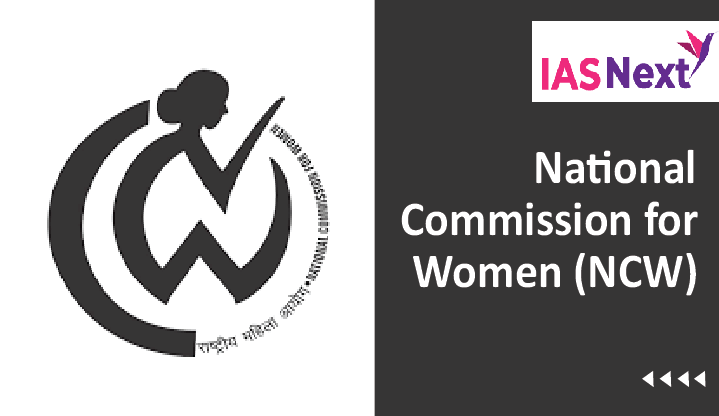CURRENT AFFAIRS
Get the most updated and recent current affair content on Padhaikaro.com
National Commission for Women
- IAS NEXT, Lucknow
- 31, Mar 2022

Reference News:-
In a move to make legal aid more accessible for women, the National Commission for Women (NCW) in collaboration with Delhi State Legal Services Authority (DSLSA) has launched a legal aid clinic which will act as a single-window facility for resolving grievances of women by offering them free legal assistance.
- NCW is also planning to set up similar legal services clinics in other State Commissions for Women.
About the legal aid clinic:
Under the new legal aid clinic, counseling will be provided for walk-in complainants, women in distress will be given legal assistance, advice and information on various schemes of the National Legal Services Authority (NALSA)/ DSLSA, assistance in mahila jansunwai, free legal aid, hearings in matrimonial cases and other complaints registered with the Commission will be provided among other services.
About NCW:
- Set up in 1992 under the National commission Act.
- It was established to review the constitutional and legal safeguards for women.
- It enjoys all the powers of a civil court.
Presentation of Reports:
It table reports to the central government, every year and at such other times as the commission may deem fit, reports upon the working of those safeguards.
Suo motu notice:
It looks into complaints, and takes Suo Motto notice of matters relating to – deprivation of women’s rights, Non-implementation of the laws and Non-compliance of the policy decisions guaranteeing the welfare for women society.
Major limitations of National Commission for Women making it toothless:
- The NCW is only recommendatory and has no power to enforce its decisions.
- Commission lacks constitutional status, and thus has no legal powers to summon police officers or witnesses.
- It has no power to take legal actions against the Internal Complaint Committees that prevent grievance redressal of women facing harassment.
- Financial assistance provided to the Commission is very less to cater to its needs.
- It does not have the power to choose its own members. The power selecting members is vested with the Union government leading to political interference at various levels.